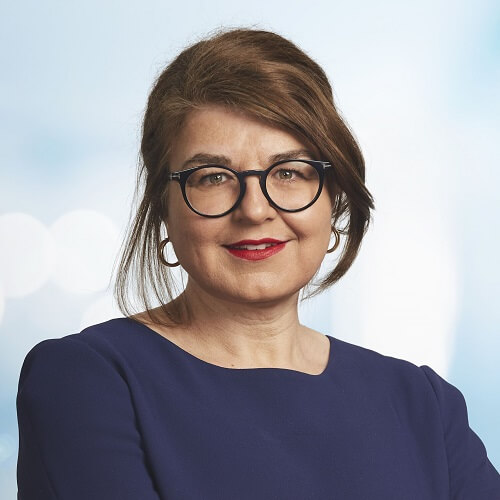Corporate Risk Radar | Series 2, Episode 1 | Finding opportunity in risk
-
Podcast 27 November 2024 27 November 2024
-
UK & Europe
-
Geopolitical outlook
The Corporate Risk Radar Podcast is back for a second series to explore the findings of Clyde & Co’s annual risk report. In this first episode, host Eva-Maria Barbosa, explores the opportunities arising from the biggest risks facing organisations today, and how they can take advantage. Barbosa is joined by Ton van den Bosch, a Partner specialising in the Asia Pacific region, and Roshanak Bassiri Gharb, a Partner based in Dubai.
The volatile geopolitical landscape means agility is more important than ever. However, as Barbosa explains, the Corporate Risk Radar Report identifies an “agility deficit”, with less than half of respondents (48%) saying their organisation can adapt to rapidly changing circumstances. Addressing this means “all those risks must be opportunities,” says Barbosa. She probes guests on how this trend is playing out within their regions, across issues spanning regulation, trade and manufacturing shifts, and funding.
Both the Middle East and Africa (MEA) and Southeast Asian markets are experiencing rapid growth, despite geopolitical tensions around the world. In MEA, Bassiri Gharb points to opportunities arising from the diversification away from oil and gas, and the dynamic regulatory environment. In Southeast Asia, van den Bosch says huge, young populations, and an increasing middle class mean that “we're actually very bullish on the region as a whole.”
Discussing the impact of regulatory change, Bassiri Gharb argues that prioritising international best practice in MEA, through initiatives such as Mission 2030 and the Digital Economy Strategy, has opened the door to more international investment. Greater regulatory clarity and aligning with international standards provides “more space for investors, reducing uncertainty, and offering a stable environment,” she says.
In Southeast Asia, geopolitical tensions have brought opportunity through the relocation of manufacturing to the region. This, combined with the easing of foreign ownership restrictions, is driving increased demand for logistics services, including the expansion of warehouse and distribution centres, and investment in infrastructure such as ports and terminals.
Energy is a key sector for Clyde & Co and van den Bosch raises challenges currently faced by clients in securing financing for oil and gas projects. Sparked by ESG concerns amongst primarily UK and European banks, this is hitting upstream suppliers, contractors, and FPSO (floating production storage and offloading) companies, forcing them to adapt by seeking funding via US and Japanese banks, alternative credit, prepayment financing or other structures.
Returning to MEA, Bassiri Gharb explains how sector diversification is creating opportunities for foreign companies and investors. She mentions the UAE's Green Economy strategy and Neom in Saudi Arabia, as two examples, stating: “You can easily see how partnerships between Middle Eastern and Western players can form into great joint ventures.”
Finally, regarding digital infrastructure and regulation, Bassiri Gharb explains that in MEA, investments in high-tech ecosystems have sparked cyber and privacy regulations, to allay any investor concerns. However, as in other areas of risk mitigation, she says the key is “finding the right balance; you don't kill the opportunities, but also make sure the safeguarding is there.”
For van den Bosch, the future is bright in Southeast Asia: “Asia is the future. With a growing population, growing economies, generally stable governments, I think it's where we will find the best opportunities.”
Look out for the next episode of our Corporate Risk Radar Podcast, which will focus on the supervisory impact of AI and tech growth. Subscribe to the Clyde & Co podcast channel for more information.
End

